Fleurs du Mal Magazine


Or see the index
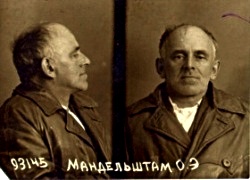
Osip Mandelstam
(1891-1938)
I detest the light…
I detest the light
Of tedious stars.
Hello, my old delirium,
The tower’s crenellated pinnacle!
Stone, turn to lace
Become a spider’s web,
With your thin needle, wound
The empty breast of the sky.
My own turn will come,
I feel the stretching of my wings.
But where will the arrow
Of living thought fly?
Perhaps having used up my path,
And my time, I will come back:
– There I could not love,
– Here I fear to love . . .
1912

Osip Mandelstam poetry
Transl. J.A. Woolf
fleursdumal.nl magazine
More in: Archive M-N, J.A. Woolf, Mandelstam, Osip, REPRESSION OF WRITERS, JOURNALISTS & ARTISTS, Woolf, J.A.
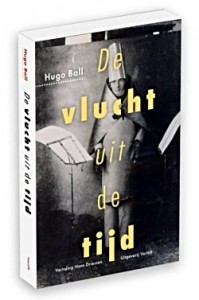 De vlucht uit de tijd
De vlucht uit de tijd
Hugo Ball
Vertaald door Hans Driessen
Het korte leven van Hugo Ball werd gekenmerkt door rusteloosheid. Deze rusteloosheid is goed zichtbaar in Balls hoofdwerk Die Flucht aus der Zeit (1927) – bijna letterlijk zijn laatste, radicale woorden. Hij wilde geen concessies meer doen aan het lezend publiek en aan de waarheid mocht niet worden geschaafd. De romanvorm schoot daarom in zijn ogen tekort: De vlucht uit de tijd werd een compilatie uit zijn dagboeken, een bonte verzameling van notities, redeneringen, uittreksels en citaten uit boeken die voor Hugo Ball belangrijk waren. Er zijn twee duidelijke zwaarte-punten: de oprichting van de dada-beweging, met alles wat daaraan voorafging en wat erop volgde, en Balls terugkeer naar de katholieke kerk, die zijn dada-kameraden hogelijk verbaasde, om niet te zeggen ergerde. De lezer wordt in De vlucht uit de tijd een blik gegund in de werkplaats van deze onnavolgbare denker, die zijn teksten presenteert zoals hij ze destijds noteerde: rechtstreeks en zonder opsmuk.
352 pagina’s | paperback
isbn 978 94 6004 265 2
prijs 22,50
Uitgeverij Vantilt
St. Annastraat 99
6501 bk Nijmegen 652 4 ek Nijmegen
e-mail: info@vantilt.nl
www.vantilt.nl
fleursdumal.nl magazine
More in: - Book News, Ball, Hugo, Dada
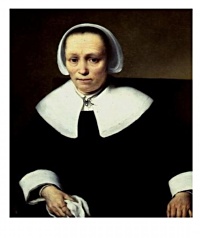
Anne Bradstreet
(1612-1672)
By Night When Others Soundly Slept
By night when others soundly slept
And hath at once both ease and Rest,
My waking eyes were open kept
And so to lie I found it best.
I sought him whom my Soul did Love,
With tears I sought him earnestly.
He bow’d his ear down from Above.
In vain I did not seek or cry.
My hungry Soul he fill’d with Good;
He in his Bottle put my tears,
My smarting wounds washt in his blood,
And banisht thence my Doubts and fears.
What to my Saviour shall I give
Who freely hath done this for me?
I’ll serve him here whilst I shall live
And Loue him to Eternity
Anne Bradstreet poetry
fleursdumal.nl magazine
More in: Archive A-B, Bradstreet, Anne
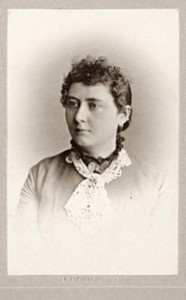
Isabella Valancy Crawford
(1850-1887)
The Ghosts Of The Trees
The silver fangs of the mighty axe,
Bit to the blood of our giant boles;
It smote our breasts and smote our backs,
Thunder’d the front-cleared leaves–
As sped in fire,
The whirl and flame of scarlet leaves
With strong desire
Leaped to the air our captive souls.
While down our corpses thunder’d,
The air at our strong souls gazed and wondered
And cried to us, ‘Ye
Are full of all mystery to me!
I saw but thy plumes of leaves,
Thy strong, brown greaves;
The sinewy roots and lusty branches,
And fond and anxious,
I laid my ear and my restless breast
By each pride-high crest;
And softly stole
And listen’d by limb and listen’d by bole,
Nor ever the stir of a soul,
Heard I in ye–
Great is the mystery!’
The strong, brown eagle plung’d from his peak,
From the hollow iron of his beak;
The wood pigeon fell; its breast of blue
Cold with sharp death all thro’ and thro’,
To our ghosts he cried.
‘With talons of steel,
I hold the storm;
Where the high peaks reel,
My young lie warm.
In the wind-rock’d spaces of air I bide;
My wings too wide–
Too angry-strong for the emerald gyves,
Of woodland cell where the meek dove thrives.
And when at the bar,
Of morn I smote with my breast its star,
And under–
My wings grew purple, the jealous thunder,
With the flame of the skies
Hot in my breast, and red in my eyes;
From peak to peak of sunrise pil’d
That set space glowing,
With flames from air-based crater’s blowing–
I downward swept, beguiled
By the close-set forest gilded and spread
A sea for the lordly tread,
Of a God’s wardship–
I broke its leafy turf with my breast;
My iron lip
I dipp’d in the cool of each whispering crest;
From thy leafy steeps,
I saw in my deeps,
Red coral the flame necked oriole–
But never the stir of a soul
Heard I in ye–
Great is the mystery!’
From its ferny coasts,
The river gazed at our strong, free ghosts,
And with rocky fingers shed
Apart the silver curls of its head;
Laid its murmuring hands,
On the reedy bands;
And at gaze
Stood in the half-moon’s of brown, still bays;
Like gloss’d eyes of stags
Its round pools gaz’d from the rusty flags,
At our ghostly crests
At the bark-shields strong on our phantom breasts;
And its tide
Took lip and tongue and cried.
‘I have push’d apart
The mountain’s heart;
I have trod the valley down;
With strong hands curled,
Have caught and hurled,
To the earth the high hill’s crown!
My brow I thrust,
Through sultry dust,
That the lean wolf howl’d upon;
I drove my tides,
Between the sides,
Of the bellowing canon.
From chrystal shoulders,
I hurled my boulders,
On the bridge’s iron span.
When I rear’d my head
From its old time bed,
Shook the pale cities of man!
I have run a course
With the swift, wild horse;
I have thunder’d pace for pace,
With the rushing herds–
I have caught the beards
Of the swift stars in the race!
Neither moon nor sun
Could me out-run;
Deep cag’d in my silver bars,
I hurried with me,
To the shouting sea,
Their light and the light of the stars!
The reeling earth
In furious mirth
With sledges of ice I smote.
I whirled my sword
Where the pale berg roar’d,
I took the ship by the throat!
With stagnant breath
I called chill Death
My guest to the hot bayou.
I built men’s graves,
With strong thew’d waves
That thing that my strength might do.
I did right well–
Men cried ‘From Hell
The might of Thy hand is given!’
By loose rocks stoned
The stout quays groaned,
Sleek sands by my spear were riven.
O’er shining slides,
On my gloss’d tides,
The brown cribs close woven roll’d;
The stout logs sprung,
Their height among
My loud whirls of white and gold!
The great raft prest,
My calm, broad breast–
A dream thro’ my shady trance,
The light canoe–
A spirit flew–
The pulse of my blue expanse.
Wing’d swift the ships.
My foaming lips
Made rich with dewy kisses,
All night and morn,
Field’s red with corn,
And where the mill-wheel hisses.
And shivers and sobs,
With lab’ring throbs,
With its whirls my strong palms play’d.
I parted my flags,
For thirsty stags,
On the necks of arches laid.
To the dry-vined town
My tide roll’d down–
Dry lips and throats a-quiver,
Rent sky and sod
With shouts ‘From God
The strength of the mighty river!’
I, list’ning, heard
The soft-song’d bird;
The beetle about thy boles.
The calling breeze,
In thy crests, O Trees–
Never the voices of souls!’
* * * * *
We, freed souls, of the Trees look’d down
On the river’s shining eyes of brown;
And upward smiled
At the tender air and its warrior child,
The iron eagle strong and wild.
* * * * *
‘No will of ours,
The captive souls of our barky tow’rs;
‘His the deed
Who laid in the secret earth the seed;
And with strong hand
Knitted each woody fetter and band.
Never, ye
Ask of the tree,
The ‘Wherefore’ or ‘Why’ the tall trees stand,
Built in their places on the land
Their souls unknit;
With any wisdom or any wit,
The subtle ‘Why,’
Ask ye not of earth or sky–
But one command it.
Isabella Valancy Crawford poetry
fleursdumal.nl magazine
More in: Archive C-D, CLASSIC POETRY
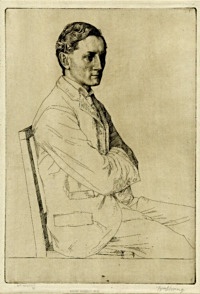
Sir Henry Newbolt
(1862-1938)
Ionicus
With failing feet and shoulders bowed
Beneath the weight of happier days,
He lagged among the heedless crowd,
Or crept along suburban ways.
But still through all his heart was young,
A courage, a pride, a rapture, sprung
Of the strength and splendour of England’s war.
From ill-requited toil he turned
To ride with Picton and with Pack,
Among his grammars inly burned
To storm the Afghan mountain-track.
When midnight chimed, before Quebec
He watched with Wolfe till he morning star;
At noon he saw from Victory’s deck
The sweep and splendour of England’s war.
Beyond the book his teaching sped,
He left on whom he taught the trace
Of kinship with the deathless dead,
And faith in all the Island race.
He passed : his life a tangle seemed,
His age from fame and power was far;
But his heart was night to the end, and dreamed
Of the sound and splendour of England’s war.
Sir Henry Newbolt poetry
fleursdumal.nl magazine
More in: Archive M-N, CLASSIC POETRY
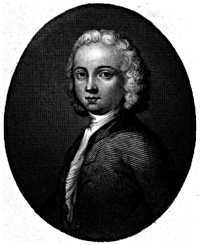
William Collins
(1721 – 1759)
Ode On The Poetical Character
As once, if not with light regard,
I read aright that gifted bard,
(Him whose school above the rest
His loveliest Elfin Queen has blest,)
One, only one, unrival’d fair,
Might hope the magic girdle wear,
At solemn tourney hung on high,
The wish of each love-darting eye;
Lo! to each other nymph in turn applied,
As if, in air unseen, some hov’ring hand,
Some chaste and angel-friend to virgin-fame,
With whisper’d spell had burst the starting band,
It left unblest her loath’d dishonour’d side;
Happier, hopeless fair, if never
Her baffled hand with vain endeavour
Had touch’d that fatal zone to her denied!
Young Fancy thus, to me divinest name,
To whom, prepar’d and bath’d in Heav’n,
The cest of amplest pow’r is giv’n:
To few the god-like gift assigns,
To gird their blest prophetic loins,
And gaze her visions wild, and feel unmix’d her flame!
The band, as fairy legends say,
Was wove on that creating day,
When He, who call’d with thought to birth
Yon tented sky, this laughing earth,
And dress’d with springs, and forests tall,
And pour’d the main engirting all,
Long by the lov’d enthusiast woo’d,
Himself in some diviner mood,
Retiring, sate with her alone,
And plac’d her on his sapphire throne,
The whiles, the vaulted shrine around,
Seraphic wires were heard to sound,
Now sublimest triumph swelling,
Now on love and mercy dwelling;
And she, from out the veiling cloud,
Breath’d her magic notes aloud:
And thou, thou rich-hair’d youth of morn,
And all thy subject life was born!
The dang’rous Passions kept aloof,
Far from the sainted growing woof:
But near it sate ecstatic Wonder
List’ning the deep applauding thunder:
And Truth, in sunny vest array’d,
By whose the tarsel’s eyes were made
All the shad’wy tribes of mind,
In braided dance their murmurs join’d,
And all the bright uncounted Pow’rs
Who feed on Heav’n’s ambrosial flow’rs.
Where is the bard, whose soul can now
Its high presuming hopes avow?
Where he who thinks, with rapture blind,
This hallow’d work for him design’d?
High on some cliff, to Heav’n up-pil’d,
Of rude access, of prospect wild,
Where, tangled round the jealous steep,
Strange shades o’erbrow the valleys deep,
And holy genii guard the rock,
Its glooms embrown, its springs unlock,
While on its rich ambitious head,
An Eden, like his own, lies spread.
I view that oak, the fancied glades among,
By which as Milton lay, his ev’ning ear,
From many a cloud that dropp’d ethereal dew,
Nigh spher’d in Heav’n its native strains could hear:
On which that ancient trump he reach’d was hung;
Thither oft his glory greeting,
From Waller’s myrtle shades retreating,
With many a vow from Hope’s aspiring tongue,
My trembling feet his guiding steps pursue;
In vain—such bliss to one alone,
Of all the sons of soul was known,
And Heav’n, and Fancy, kindred pow’rs,
Have now o’erturn’d th’ inspiring bow’rs,
Or curtain’d close such scene from ev’ry future view.
William Collins poetry
fleursdumal.nl magazine
More in: Archive C-D, CLASSIC POETRY

C. BUDDINGH’ PRIJS 2016
Optredens van de genomineerden voor de C. Buddingh’-Prijs 2016. Presentatie van de festivalbundel. M.m.v. Daniël Dee, Bas Kwakman, Marcel Möring en Robert van Raffe.
zondag 29 mei – 14:00 uur – podium – toegang vrij
Lokatie BOEKHANDEL DONNER
Optredens van de genomineerden voor de C. Buddingh’-Prijs 2016: Matthijs Gomperts met Zes, Joanthan Griffioen met Wijk, Sebastiene Postma met Trappen, Marieke Rijneveld met Kalfsvlies.
”Een groot deel van de nieuwe lichting dichteressen en dichters houdt het wat hun poëzie betreft dicht bij huis. Persoonlijke herinneringen of emoties worden tot gedicht opgewerkt, waarbij zaken als experiment in vorm of de kracht van muzikaliteit in een tekst veelal ontbreken. Dit ietwat sombere beeld is zeker niet van toepassing op de vier genomineerde debutanten, die zich juist door onderwerpkeuzes, vorm of een combinatie van die twee, aan de poëtische bedeesdheid van de nieuwste dichtgeneratie onttrekt.” Aldus de jury.
De C. Buddingh’-Prijs wordt sinds 1988 jaarlijks uitgereikt tijdens het Poetry International Festival. Dichters alsTonnus Oosterhoff, Anna Enquist, Joke van Leeuwen, Ilja Pfeijffer, Henk van der Waal en Maria Barnas hebben al eens eerder de prijs in ontvangst mogen nemen.
Met optredens van Daniël Dee, Bas Kwakman en Robert van Raffe. Tevens wordt de festivalbundel gepresenteerd.
Presentatie Marcel Möring.
 POEZIE EN STRIPS
POEZIE EN STRIPS
Tijdens het Poetry International Festival verschijnt DUPLEX, een bundeling grafische gedichten van dichters en striptekenaars. Samensteller en initiatiefnemer Stefan Nieuwenhuis nodigde acht duo’s uit Nederland en Vlaanderen uit om samen een grafisch gedicht te maken. ‘Dit project,’ vertelt tekenaar Ruben Steenman, ‘waarbij je van begin tot eind samenwerkt, is iets heel nieuws en vergt echt een nieuwe aanpak’.
De duo’s Tsead Bruinja – Lies van Gasse, Daniel Dee – Robert van Raffe, Ellen Deckwitz – Ruben Steeman, Delphine Frantzen – Maud Vanhauwaert en Maarten van der Graaff zonder tekenaar Maarten de Saeger presenteren het veelkleurige resultaat van hun samenwerkingen op vrijdag 10 juni op het festival. Het duo Daniel Dee en Robert van Raffe vertelt er in Donner alvast meer over .
FESTIVALTIPS EN BLOEMLEZING ‘NEWSPEAK’
Een god die vrouwen door een rietje drinkt, de alles-komt-goed-man van ijzer, een privé-leger van deftige zombies en Sean Penn die straalverliefd door het bos rent, wat komt er niet voorbij tijdens het 47e Poetry International Festival Rotterdam. Poetrydirecteur Bas Kwakman geeft een persoonlijke en veelkleurige rondleiding langs festivaldichters en -programma’s en leest alvast enkele gedichten ter illustratie.
Tijdens de festivalopening NEWSPEAK presenteren alle dichters zich met een geladen gedicht, vertolkt het Mondriaan Kwartet gedichten van Allen Ginsberg en maakt u kennis met de Anti-Synthpop van Rooie Waas. De gedichten van deze avond staan gebundeld in de gelijknamige bloemlezing die vandaag wordt gepresenteerd en waarmee u zich alvast kunt inlezen op uw eerste festivalbezoek. En mis dit jaar zeker de Language & Art Gallery Tour niet!
Boekhandel Donner op zondag 29 mei a.s., 14:00 uur
Preview 47th Poetry International Festival Rotterdam
fleursdumal.nl magazine
More in: - Book Lovers, - Bookstores, Art & Literature News, Literary Events, POETRY ARCHIVE, Poetry International, Rijneveld, Marieke Lucas
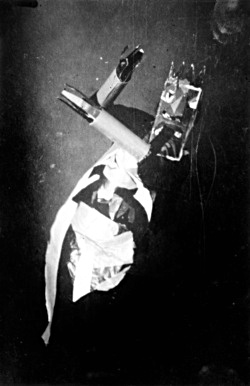 Genese Dada
Genese Dada
100 Jahre Dada Zürich
bis 10. Jul 2016
“Wie erlangt man die ewige Seligkeit? Indem man Dada sagt. Wie wird man berühmt? Indem man Dada sagt. Mit edlem Gestus und mit feinem Anstand. Bis zum Irrsinn, bis zur Bewusstlosigkeit.”
Hugo Ball
Über die Ausstellung
Am 5. Februar 1916 von Hugo Ball, Emmy Hennings, Marcel Janco, Tristan Tzara und Hans Arp im »Cabaret Voltaire« in Zürich gegründet, ist Dada eine der progressivsten Kunstbewegungen des 20. Jahrhunderts. Zum 100-jährigen Jubiläum lässt das Arp Museum Bahnhof Rolandseck die bedeutenden Geburtsorte Dadas wieder aufleben: die legendäre Künstlerkneipe »Cabaret Voltaire« und die bürgerliche »Galerie Dada«. Ausgehend von diesen beiden Polen revolutionierten die Dadaisten innerhalb kürzester Zeit die internationale Kunstwelt. Neben ihren eigenen Arbeiten zeigten sie dort Werke von internationalen Avantgarde-Künstlern wie Giorgio de Chirico, Pablo Picasso, Paul Klee und Elie Nadelman, die nun auch in der Ausstellung zu sehen sind. Die Kunstwerke werden in eine lebhafte Inszenierung eingebettet, die den vielsKünstlerinnen und Künstler der Ausstellung
Genese Dada. 100 Jahre Dada Zürich
Anonym (Meister der Magdalenen-Legende)
Hans Arp
Hugo Ball
Heinrich Campendonk
Giorgio De Chirico
Jacoba van Heemskerck
Richard Huelsenbeck
Marcel Janco
Paul Klee
Oscar Lüthy
August Macke
Francois-Joseph Martin
Elie Nadelmann
Max Oppenheimer
Pablo Picasso
Hilla Rebay
Otto Van Rees
Adya Van Rees-Dutilh
Arthur Segal
Sophie Taeuber
Tristan Tzarachichtigen gesellschaftlichen und intellektuellen Nährboden verdeutlicht, aus dem Dada entstanden ist. Themengebiete wie Psychologie, Literatur und politisch-soziokulturelle Revolte spiegeln dabei den Zeitgeist wider und machen die Entstehung von Dada anschaulich.
In Zusammenarbeit mit dem Cabaret Voltaire, Zürich
“Dada ist schön wie die Nacht, die einen jungen Tag in ihren Armen wiegt.”
Hans Arp
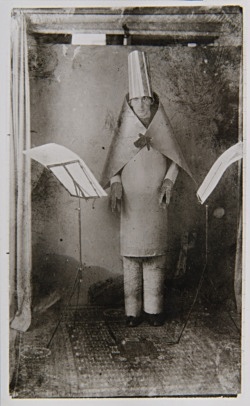 100 Jahre Dada: Das große Fest des kultivierten Un-Sinns
100 Jahre Dada: Das große Fest des kultivierten Un-Sinns
“Genese Dada. 100 Jahre Dada Zürich: Das Arp Museum feiert das große Dada-Jubiläum 2016 mit einer ebenso fulminanten wie substantiellen Ausstellung, die die Entstehung der für die Moderne so wichtigen Kunstrichtung anschaulich nachverfolgt. (Ausstellungsdauer bis 10. Juli 2016)
Einen zentralen Beitrag zum europaweit gefeierten Dada-Jahr stellt die große Ausstellung »Genese Dada. 100 Jahre Dada Zürich« (14. Februar bis 10. Juli 2016) im Arp Museum Bahnhof Rolandseck dar, die in Kooperation mit dem Direktor des Cabaret Voltaire in Zürich, Adrian Notz, erarbeitet wurde. »Wie aus einer künstlerischen Laune eine revolutionäre internationale Kunstrichtung wird und welche Rolle die beiden mit Rheinland-Pfalz verbundenen Künstlerpersönlichkeiten Hugo Ball und Hans Arp spielen, ist in dieser fantastischen Ausstellung mit größtem Vergnügen zu erleben«, kommentiert der rheinland-pfälzische Kulturstaatssekretär Walter Schumacher.
Am 5. Februar 1916 von Hugo Ball, Emmy Hennings, Marcel Janco, Tristan Tzara und Hans Arp im Cabaret Voltaire in Zürich gegründet, wurde Dada zu einer der zentralen Kunstbewegungen des 20. Jahrhunderts. Anlässlich des Jubiläums widmet sich das Arp Museum Bahnhof Rolandseck den Anfangsjahren der Kunstbewegung und erweckt die bedeutenden Entstehungsorte Dadas wieder zum Leben: die legendäre Künstlerkneipe »Cabaret Voltaire« und die eher bürgerlich orientierte »Galerie Dada«. »Als Gegengewicht zum dionysischen Cabaret wurde die apollinische Galerie eingesetzt. Nur durch die beiden Komponenten Cabaret Voltaire und Galerie Dada konnte die Unruh von Dada in Schwingung gebracht werden«, bewertet Adrian Notz.
Die Abkehr vom Krieg und die Entdeckung des Nichts
Im Wechselspiel zwischen den beiden gegensätzlichen Geburtsstätten entwickelte sich im damals äußerst kosmopolitischen Zürich – einer der Flüchtlingsmetropolen Europas – der Geist Dadas. Ein wichtiger Ausgangspunkt war der überzeugte Pazifismus der Protagonisten. Selbst die Künstler, die sich anfangs dem allgegenwärtigen Kriegstaumel nicht ganz entziehen konnten, sagten sich von ihm los und versuchten, die Geschehnisse jenseits der so sicher erscheinenden Gebirgsketten zu verdrängen. Gleichzeitig waren es die Grauen des Krieges, die alles Bestehende so nichtig erscheinen ließen – und das Nichts so zum neuen Gott erhoben.
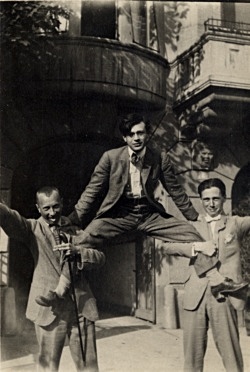 Die große Revolte gegen die Traditionen und Konventionen – ohne politische Ideologie
Die große Revolte gegen die Traditionen und Konventionen – ohne politische Ideologie
Zugleich wurden die bürgerliche Gesellschaft und ihr gängiger Wertekanon, die den Ersten Weltkrieg hervorgebracht hatten, zur Zielscheibe des künstlerischen Protestes erklärt. Die etablierte Kunst als Teil dieser Gesellschaft wurde als reaktionär und überholt abgelehnt.
Stattdessen suchten die Dadaisten nach neuen Ausdrucksformen, in der darstellenden wie in der bildenden Kunst. In den legendären Soireen im Cabaret Voltaire wurde gedichtet, gesungen, hinter Masken getanzt und den anarchischen Kräften von Geist und Körper Tribut gezollt. Die bisweilen absurde dadaistische Performance war durchaus mehr als eine Narretei – und doch war sie kein Akt dezidierten politischen Protestes. Die Dadaisten verweigerten sich einer klaren Zuordnung zu einer politischen Haltung. Vielmehr war es die Macht der Ratio und ihrer vermeintlichen Strategien, die nun zum Urgrund aller kollektiven Verbrechen erklärt wurde. So erteilten die Künstler der Logik eine radikale Absage.
Befreiung der Sprache und Lob des Archaischen sowie der mystischen Naturverbundenheit
Der Abgesang auf die herrschenden Mächte und ihre Propaganda führte zu neuen Formen des sinnlichen, aber unsinnigen Sprachgebrauchs. In Simultan- und Lautgedichten suchten die Dadaisten die Grenzen des Vernunftdenkens zu überwinden. In mystischen Übungen diente das Unterbewusstsein als Quelle des unmittelbar Schöpferischen, wobei zeitgenössische Theorien und wissenschaftliche Schriften der Psychoanalyse, etwa von C. G. Jung, wichtige Impulse lieferten.
In ihrer Suche nach vorsprachlichen, urwüchsigen Ausdrucksformen und einer Sehnsucht nach der vorzivilisierten Natur spiegeln die Dadaisten einen Aspekt des Zeitgeistes. Die Lebensreformer und Nudisten, die etwa zeitgleich im schweizerischen Ascona auf dem Monte Verità im Einklang mit der Natur lebten und mit den Dada-Künstlern in regem Austausch standen, sind hier beispielhaft zu nennen.
Auch das starke Interesse an der afrikanischen Kunst, die mit dem so genannten Primitivismus weithin ihre Würdigung erfuhr, fügt sich hier ein. Von Klischees geprägt, wird die so genannte »Negerkunst« in europäischen Ausstellungen gefeiert und ihre Formensprache zu adaptieren versucht. Die exotischen Rhythmen wiederum lieferten Inspiration für theatralische Darbietungen und maskierte Tänze, in denen man das Unmittelbare, Spontane und Unkontrollierbare anstrebte, das mit den Kulturpraktiken primitiver Stämme assoziiert wurde.
Vom Zürcher Kabarett zur Internationalen Bewegung
Die »wilde« Initiationsphase im Cabaret Voltaire setzte sich in der benachbarten Galerie Dada fort. Mit dem Ortswechsel lässt sich jedoch auch eine gewisse Professionalisierung erkennen. Durch öffentliche Führungen und den Kontakt zu Journalisten sollte gezielt ein kunstaffines Publikum erreicht werden. Neben den Soireen wurden in der Galerie vermehrt Ausstellungen gezeigt, bei denen auch Werke namhafter internationaler Avantgarde-Künstler zu sehen waren. Die Ablehnung der etablierten Kunst durch die Dadaisten wandelt sich hier in das Bestreben, mittels Bezügen zum Surrealismus, Futurismus oder Kubismus den Anschluss an die internationale Kunstszene zu gewinnen. Die dadaistischen Manifeste und Schriften, die Hugo Ball und seine Mitstreiter publizierten, dienten dabei als Medium der Verbreitung. Es bildeten sich Dada-Zentren in Hannover, Berlin und Köln aber auch in Paris und New York, und Dada revolutionierte innerhalb kürzester Zeit die Kunstwelt.
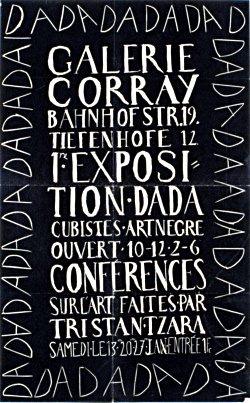 Dada – kein Stil, sondern . . .
Dada – kein Stil, sondern . . .
Die Ausstellung widmet sich intensiv dem intellektuellen und wissenschaftlichen Nährboden der Zeit, aus dem Dada hervorging. Themen wie Mystik, Psyche, Revolte, Philosophie und Literatur stehen dabei in engem Wechselspiel zu den verschiedenen künstlerischen Formen und Praktiken, die sich unter dem Einfluss der Dadaisten in eine gänzlich neue Richtung entwickelt haben – von Tanz, Theater, Poesie und Neuer Musik bis hin zu Masken und Kostümen, Collagen, Objekten, Gemälden und Grafiken. Entscheidend ist hierbei die im Ausstellungskatalog festgehaltene Schlussfolgerung des Dada-Kenners Tobia Bezzola, dass sich der Dadaismus nicht auf einen Stil reduzieren lasse. Anders als andere Ismen der modernen Avantgarden sei Dada nicht an einer spezifischen Form zu erkennen und an ihr zu charakterisieren. Als proklamierte »Stunde Null« in der Kunst stellt Dada somit einen Bruch mit einer chronologisch nachvollziehbaren Stilentwicklung dar, wie sie die Kunstgeschichte von der Neuzeit bis zur Postmoderne konstruiert. Damit wird die Dada-Bewegung zum Modellfall für nachfolgende Strömungen wie Fluxus oder auch die Performance- und Aktionskunst.
Von der Dada-Schleuse zur Rauminszenierung
In der Ausstellung werden Werke aus dem engeren Kreis der Zürcher Dadaisten (Hans Arp, Hans Richter, Marcel Janco u. a.) in ihrem künstlerischen Umfeld (Arthur Segal, Max Oppenheimer, Adya und Otto van Rees u. a.) präsentiert. Hinzu kommen Gemälde und grafische Arbeiten von Künstlerinnen und Künstlern der internationalen Avantgarde wie Heinrich Campendonk, Giorgio de Chirico, Paul Klee, August Macke, Elie Nadelman, Pablo Picasso und Hilla von Rebay, die auch in den historischen Dada-Ausstellungen zu sehen waren. Als Leihgeber konnten hierfür renommierte Sammlungen wie das Guggenheim Museum und das Museum of Modern Art, New York, das Kunsthaus Zürich, das Folkwang Museum, Essen, u. v. a. gewonnen werden.
Die Kunstwerke sind in eine anschauliche, multi-mediale Inszenierung eingebettet: Bevor die Besucher die Ausstellung betreten, durchlaufen sie eine Bild- und Klangcollage, die sogenannte »Dada-Schleuse«, die sich von den unterirdischen Tunneln über den Aufzug bis ins 1. Obergeschoss des Richard Meier-Baus erstreckt. In zwei Ausstellungskuben werden die räumliche Situation des Cabaret Voltaire und der Galerie Dada nachempfunden, so dass die unterschiedliche Atmosphäre der beiden Lokalitäten erkennbar wird. Um diese beiden Zentren gruppieren sich verschiedene Themenfelder, die die Entstehung von Dada anhand zahlreicher Kunstwerke und Zeitdokumente greifbar machen. Ergänzt wird die Präsentation durch den Film »Dada in Nuce« und durch von Adrian Notz entwickelte Diagramme, die wie das »Firmament Dada« die internationale Vernetzung der Bewegung deutlich machen.
Kuratiert wird die vielfältige Schau von Adrian Notz (Cabaret Voltaire, Zürich) und Astrid von Asten unterstützt von Sylvie Kyeck (beide Arp Museum Bahnhof Rolandseck).
Die Ausstellung wird begleitet von einem umfangreichen Katalog (deutsch/ englisch, Verlag Scheidegger & Spiess, Preis: 38 Euro), in dem unter anderem auch die Rolle Hans Arps bei der Entstehung von Dada erläutert wird. »Unser Hauspatron Hans Arp zählt zu den
Gründungsmitgliedern jener künstlerischen Bewegung, die 1916 von Zürich aus innerhalb kürzester Zeit das Kunstgeschehen weltweit nachhaltig veränderte,« so Dr. Oliver Kornhoff, Direktor des Arp Museums Bahnhof Rolandseck und künstlerischer Leiter des
Künstlerhauses Schloss Balmoral in Rheinland-Pfalz
# More info website Arp Museum Bahnhof Rolandseck
fleursdumal.nl magazine
Fotos
-Hugo Ball im kubistischen Kostüm, 1916, unbekannter Fotograf
-Dada-Tanz mit Maske (Sophie Taeuber oder Emmy Hennings?), ca. 1917 – Stiftung Arp e.V., Berlin/Rolandswerth, unbekannter Fotograf
-Hans Arp, Tristan Tzara, Hans Richter vor dem Hotel Elite, Zürich 1918 – Stiftung Arp e.V. Rolandswerth/Berlin, unbekannter Fotograf
-Marcel Janco, Plakat der Ersten Dada-Ausstellung in der Galerie Corray, 1917
More in: - Book News, Adya & Otto van Rees, Art & Literature News, Ball, Hugo, Dada, DADA, Dadaïsme, DANCE & PERFORMANCE, Exhibition Archive, THEATRE
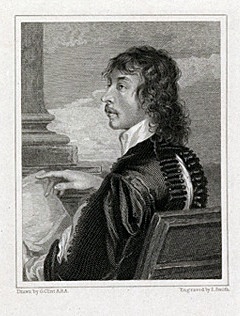
Thomas Carew
(1594-1640)
I Do Not Love Thee For That Fair
I do not love thee for that fair
Rich fan of thy most curious hair;
Though the wires thereof be drawn
Finer than threads of lawn,
And are softer than the leaves
On which the subtle spider weaves.
I do not love thee for those flowers
Growing on thy cheeks, love’s bowers;
Though such cunning them hath spread,
None can paint them white and red:
Love’s golden arrows thence are shot,
Yet for them I love thee not.
I do not love thee for those soft
Red coral lips I’ve kissed so oft,
Nor teeth of pearl, the double guard
To speech whence music still is heard;
Though from those lips a kiss being taken
Mighty tyrants melt, and death awaken.
I do not love thee, O my fairest,
For that richest, for that rarest
Silver pillar, which stands under
Thy sound head, that globe of wonder;
Though that neck be whiter far
Than towers of polished ivory are.
Thomas Carew poetry
fleursdumal.nl magazine
More in: Archive C-D, CLASSIC POETRY
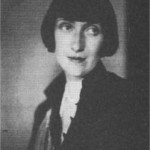
Francisca Stoecklin
(1894-1931)
An ein Mädchen
Bist du Leda,
und wartest noch immer
auf die Rückkehr
des schimmernden Schwanes,
der allein dem Schmiegen
deiner fließenden Glieder genügt?
O, wie lange ist alles
Beglückende vergangen!
Nur wenn du tanzest,
wenn deine Blässe
vom Strahl der Mitternachtssonne
erleuchtet,
durchpulsen Jahrtausende
deine Seele, deinen Leib.
In deinem Lachen birgt sich
der Schrei der Mänade.
In dem sich wild lösenden Goldhaar
schwebt ein Schimmer
von Blut.
Dann liebst du das Feuer,
die Erde, den Wind –
und alle die um dich sind
werden empor gehoben
in ein Reich von Rausch und Traum,
– und du weißt nicht,
hält dich das Leben
oder der Tod.
Francisca Stoecklin Lyrik
fleursdumal.nl magazine
More in: Archive S-T, Stoecklin, Francisca

Vachel Lindsay
(1879 – 1931)
Buddha
Would that by Hindu magic we became
Dark monks of jeweled India long ago,
Sitting at Prince Siddartha’s feet to know
The foolishness of gold and love and station,
The gospel of the Great Renunciation,
The ragged cloak, the staff, the rain and sun,
The beggar’s life, with far Nirvana gleaming:
Lord, make us Buddhas, dreaming.
Vachel Lindsay poetry
fleursdumal.nl magazine
More in: Archive K-L, Archive K-L, CLASSIC POETRY, Lindsay, Vachel

Anne Bradstreet
(1612-1672)
The Author to Her Book
Thou ill-form’d offspring of my feeble brain,
Who after birth didst by my side remain,
Till snatched from thence by friends, less wise than true,
Who thee abroad, expos’d to publick view,
Made thee in raggs, halting to th’ press to trudge,
Where errors were not lessened (all may judg).
At thy return my blushing was not small,
My rambling brat (in print) should mother call,
I cast thee by as one unfit for light,
Thy Visage was so irksome in my sight;
Yet being mine own, at length affection would
Thy blemishes amend, if so I could:
I wash’d thy face, but more defects I saw,
And rubbing off a spot, still made a flaw.
I stretched thy joynts to make thee even feet,
Yet still thou run’st more hobling then is meet;
In better dress to trim thee was my mind,
But nought save home-spun Cloth, i’ th’ house I find.
In this array ’mongst Vulgars mayst thou roam.
In Criticks hands, beware thou dost not come;
And take thy way where yet thou art not known,
If for thy Father askt, say, thou hadst none:
And for thy Mother, she alas is poor,
Which caus’d her thus to send thee out of door.
Anne Bradstreet poetry
fleursdumal.nl magazine
More in: Archive A-B, Bradstreet, Anne
Thank you for reading Fleurs du Mal - magazine for art & literature